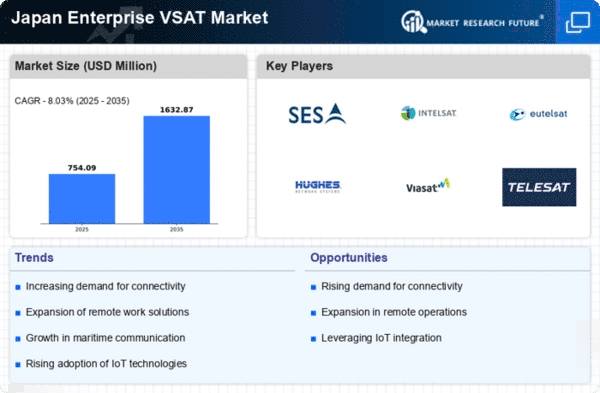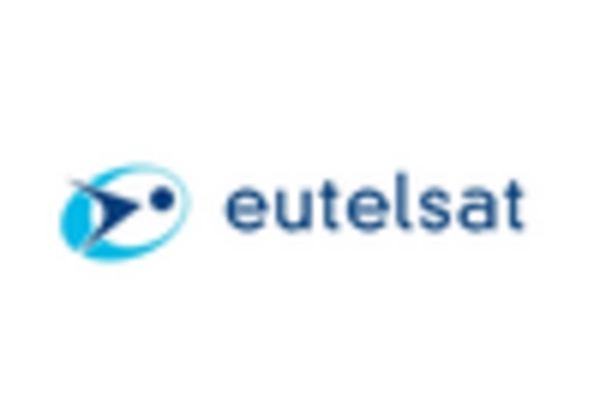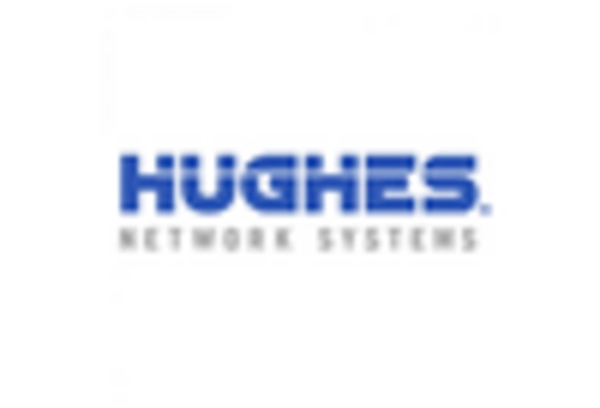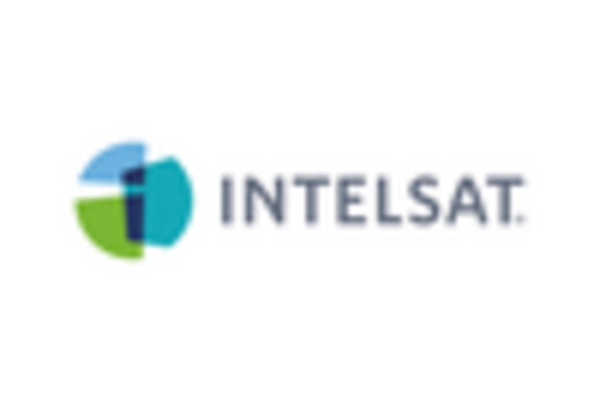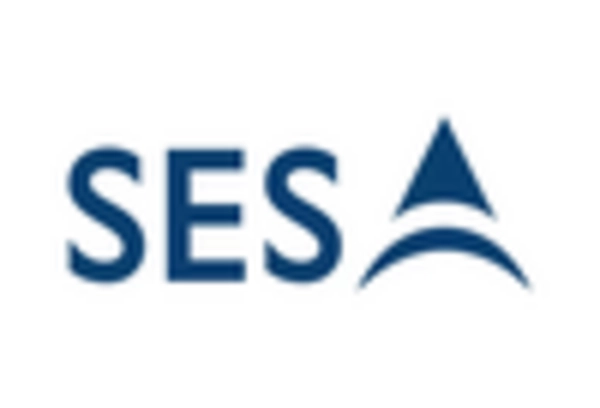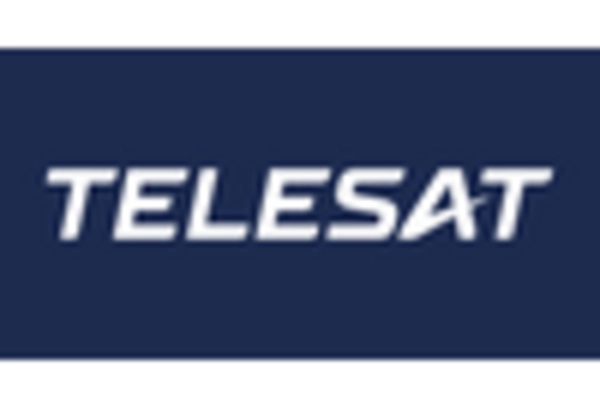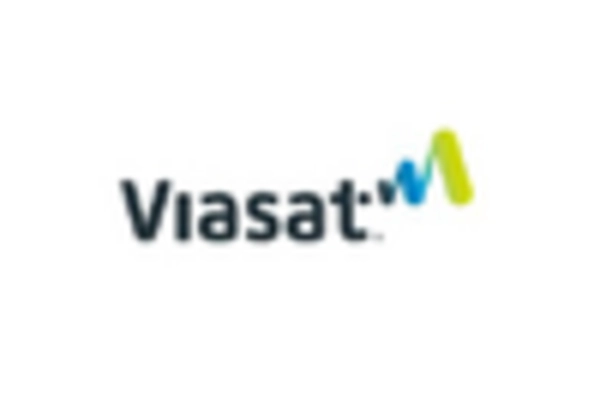Emergence of IoT Applications
The rise of Internet of Things (IoT) applications is poised to significantly impact the Enterprise VSAT Market in Japan. As industries increasingly adopt IoT technologies for monitoring and automation, the need for reliable satellite connectivity becomes essential. This is particularly relevant in sectors such as agriculture and logistics, where remote monitoring and data collection are crucial. Current estimates suggest that the number of IoT devices in Japan could reach 1 billion by 2025, creating a substantial opportunity for the enterprise vsat market. The integration of satellite communication with IoT solutions may enhance operational efficiency and data transmission capabilities for Japanese enterprises.
Expansion of Remote Work Solutions
The shift towards remote work has significantly influenced the Enterprise VSAT Market in Japan. As organizations adapt to flexible work arrangements, the necessity for robust and secure communication channels has intensified. Satellite communication offers a viable solution, particularly in rural and underserved areas where traditional broadband may be lacking. Recent statistics indicate that around 30% of Japanese companies have adopted remote work policies, further propelling the need for reliable satellite connectivity. This trend suggests that the enterprise vsat market will continue to grow as businesses seek to ensure seamless communication and collaboration among remote teams.
Rising Demand for High-Speed Connectivity
The Enterprise VSAT Market in Japan is experiencing a notable surge in demand for high-speed connectivity solutions. As businesses increasingly rely on digital communication and cloud-based services, the need for reliable and fast internet access becomes paramount. This trend is particularly evident in sectors such as finance and healthcare, where data transmission speed is critical. According to recent data, the demand for high-speed satellite internet services has grown by approximately 25% in the last year alone. This rising demand is likely to drive innovation and investment in the enterprise vsat market, as providers seek to enhance their offerings to meet the evolving needs of Japanese enterprises.
Growing Focus on Disaster Recovery Solutions
The Enterprise VSAT Market in Japan is increasingly being shaped by the growing emphasis on disaster recovery and business continuity planning. Given Japan's vulnerability to natural disasters, organizations are prioritizing reliable communication systems that can withstand such events. Satellite communication provides a resilient solution, ensuring connectivity even when terrestrial networks are compromised. Recent surveys reveal that approximately 40% of Japanese enterprises are investing in disaster recovery solutions, which may drive demand for enterprise vsat services. This focus on resilience is likely to position the enterprise vsat market as a critical component of comprehensive business continuity strategies.
Increased Investment in Infrastructure Development
Japan's commitment to enhancing its telecommunications infrastructure is a critical driver for the Enterprise VSAT Market. The government has initiated various projects aimed at improving connectivity across the nation, particularly in remote regions. This investment is expected to bolster the capabilities of satellite communication systems, making them more accessible and efficient. Reports indicate that infrastructure spending in the telecommunications sector is projected to reach ¥1 trillion by 2026, which could significantly benefit the enterprise vsat market. Enhanced infrastructure will likely lead to improved service quality and expanded coverage, attracting more enterprises to adopt satellite solutions.


